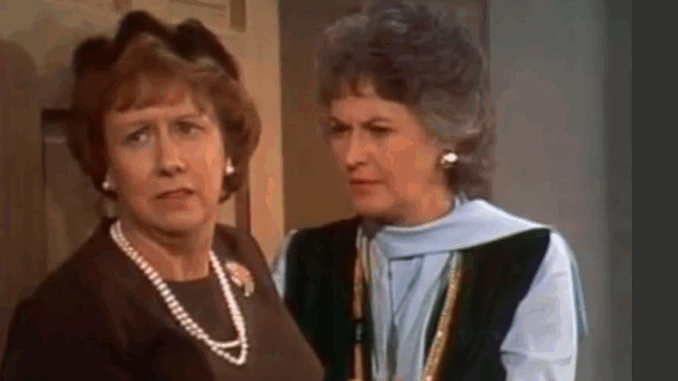
Maude broke barriers in 1970s television with sharp wit and fearless takes on feminism, politics, and social change. Discover how Bea Arthur’s bold character reshaped sitcom history.
“Maude” – A Sitcom Ahead of Its Time
Premiering in 1972 as a spin-off of All in the Family, Maude quickly became one of the most revolutionary sitcoms on American television. Centered on Maude Findlay—played by the iconic Bea Arthur—the show wasn’t afraid to speak its mind. Bold, liberal, and outspoken, Maude was the perfect counterbalance to her cousin Edith’s overbearing husband, Archie Bunker.
The series tackled controversial issues like women’s liberation, abortion, divorce, civil rights, and mental health—long before most other shows dared to. In fact, Maude was one of the first network shows to bring these discussions into mainstream living rooms, earning both acclaim and backlash along the way.
Bea Arthur as Maude Findlay: A TV Icon
Bea Arthur’s performance as Maude was fierce, funny, and unforgettable. With her commanding voice, razor-sharp delivery, and no-nonsense presence, she became the face of the modern feminist movement on television. Her character was educated, opinionated, and unapologetically political—a major departure from the more submissive female roles typically seen in sitcoms of the time.
Maude wasn’t just a comedic character—she was a cultural force. Whether clashing with her fourth husband Walter, challenging social norms, or debating politics over dinner, Maude’s unapologetic honesty made her both polarizing and inspiring.
Breaking Boundaries—One Episode at a Time
What made Maude stand out was its fearless storytelling. The show famously aired a two-part episode in 1972 where Maude has an abortion—a subject completely taboo at the time. Despite outrage from some viewers and conservative critics, the episode drew massive attention and is now remembered as one of the boldest moments in sitcom history.
Maude didn’t back down from real issues. It addressed alcoholism, menopause, depression, and the Vietnam War—while still managing to deliver punchlines and laughs. It proved that sitcoms didn’t have to shy away from reality—they could reflect and challenge it.
A Legacy of Feminism and Fearlessness
Maude Findlay wasn’t just a character—she was a mirror of the shifting American society in the 1970s. As more women joined the workforce and demanded equality, Maude became their fictional champion. She was loud, proud, and flawed—making her all the more real and relatable.
The show paved the way for future female-led sitcoms like Roseanne, Murphy Brown, The Golden Girls, and even modern hits like Grace and Frankie. In fact, Bea Arthur’s portrayal of Dorothy Zbornak in The Golden Girls owes much to the foundation she laid as Maude.
Final Thoughts
Maude remains one of television’s most daring and important sitcoms. It mixed humor with activism, and heart with hard truths. In an era where network TV often played it safe, Maude was anything but.
For anyone exploring the roots of feminist media, progressive storytelling, and groundbreaking sitcoms—Maude Findlay is a name you’ll never forget.